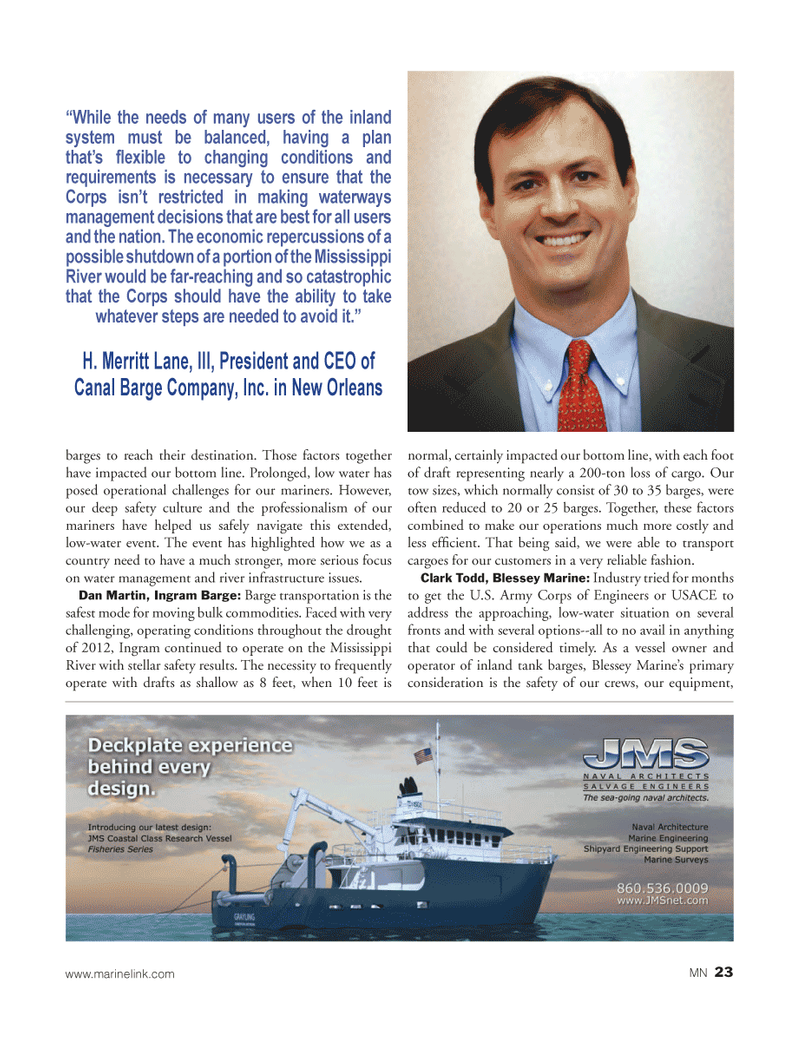
Page 23: of Marine News Magazine (February 2013)
Bulk Transport Leadership Roundtable
Read this page in Pdf, Flash or Html5 edition of February 2013 Marine News Magazine
barges to reach their destination. Those factors together have impacted our bottom line. Prolonged, low water has posed operational challenges for our mariners. However, our deep safety culture and the professionalism of our mariners have helped us safely navigate this extended, low-water event. The event has highlighted how we as a country need to have a much stronger, more serious focus on water management and river infrastructure issues. Dan Martin, Ingram Barge: Barge transportation is the safest mode for moving bulk commodities. Faced with very challenging, operating conditions throughout the drought of 2012, Ingram continued to operate on the Mississippi River with stellar safety results. The necessity to frequently operate with drafts as shallow as 8 feet, when 10 feet is normal, certainly impacted our bottom line, with each foot of draft representing nearly a 200-ton loss of cargo. Our tow sizes, which normally consist of 30 to 35 barges, were often reduced to 20 or 25 barges. Together, these factors combined to make our operations much more costly and less efÞ cient. That being said, we were able to transport cargoes for our customers in a very reliable fashion. Clark Todd, Blessey Marine: Industry tried for months to get the U.S. Army Corps of Engineers or USACE to address the approaching, low-water situation on several fronts and with several options--all to no avail in anything that could be considered timely. As a vessel owner and operator of inland tank barges, Blessey MarineÕs primary consideration is the safety of our crews, our equipment, ?While the needs of many users of the inland system must be balanced, having a plan that?s ß exible to changing conditions and requirements is necessary to ensure that the Corps isn?t restricted in making waterways management decisions that are best for all users and the nation. The economic repercussions of a possible shutdown of a portion of the Mississippi River would be far-reaching and so catastrophic that the Corps should have the ability to take whatever steps are needed to avoid it.?H. Merritt Lane, III, President and CEO of Canal Barge Company, Inc. in New Orleans www.marinelink.com MN 23MN Feb2013 Layout 18-31.indd 23MN Feb2013 Layout 18-31.indd 231/30/2013 4:48:42 PM1/30/2013 4:48:42 PM

 22
22

 24
24
